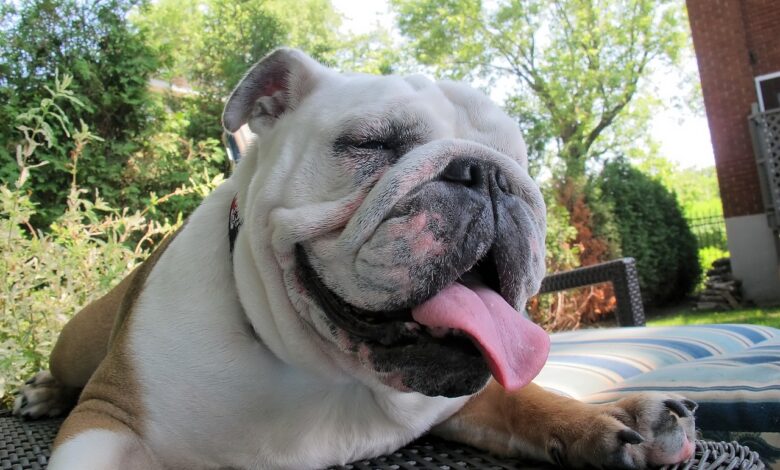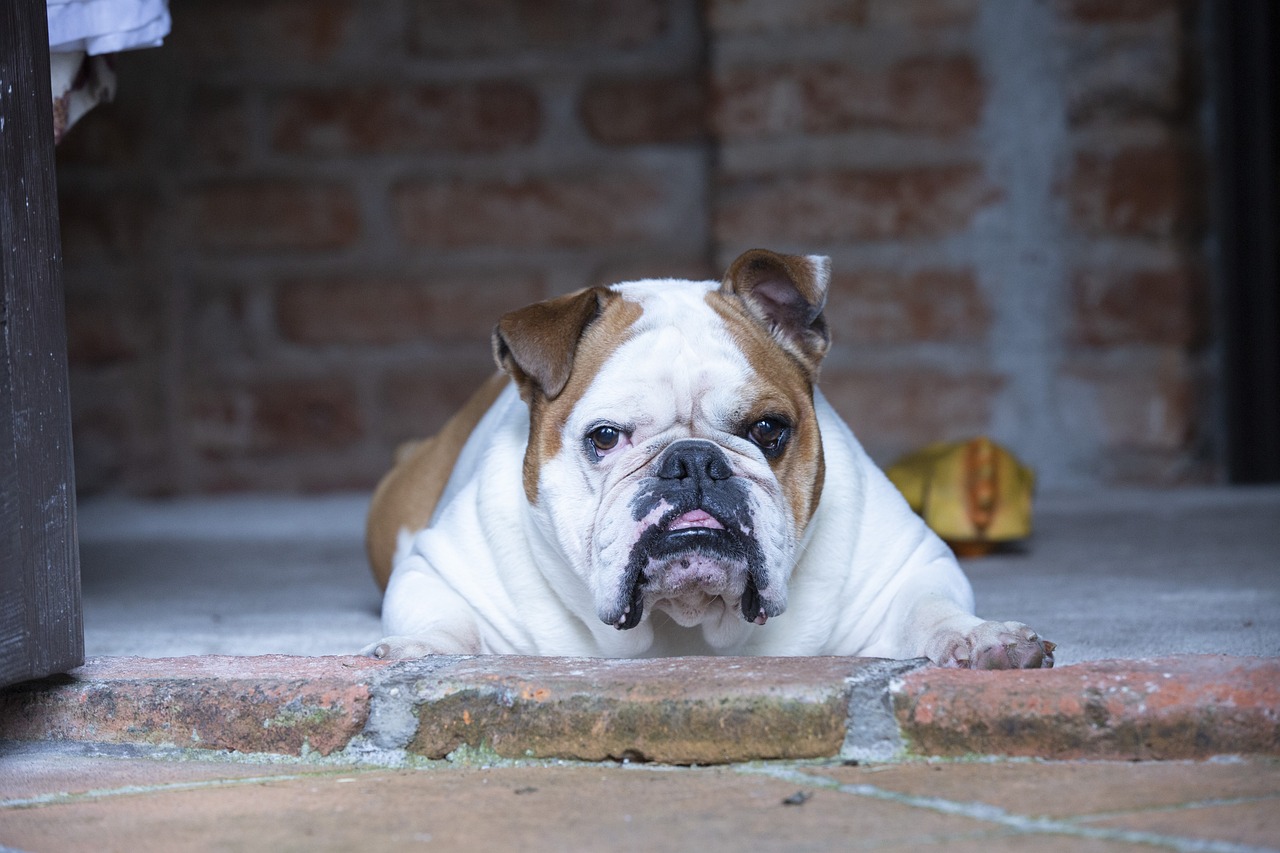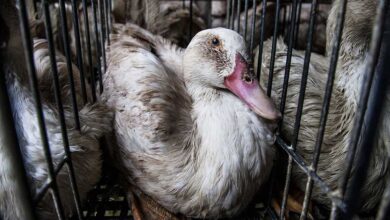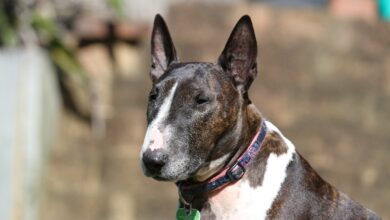Why is My Bulldog Not Eating?

Bulldogs, known for their lovable, laid-back personalities and distinctive appearance, are a breed that often becomes a cherished part of any family they join. However, like all breeds, they can experience health and behavioral issues that may affect their eating habits. Understanding these issues is crucial for any bulldog owner.
Understanding Bulldogs’ Unique Dietary Needs
Bulldogs have specific dietary requirements due to their unique physical build and energy levels. They typically require a balanced diet of proteins, fats, and carbohydrates. However, their nutritional needs can change based on age, activity level, and health status. It’s important to tailor their diet to these evolving needs to ensure they receive adequate nutrition.
Common Reasons for Bulldogs’ Loss of Appetite
There are several reasons why your bulldog might not be eating as usual. These can range from simple issues like a routine or environmental change to more severe health concerns.
- Environmental and Routine Changes: Bulldogs can be sensitive to ecological or routine changes. A new home, the addition of a new pet or family member, or even a difference in the time of day they are fed can impact their appetite.
- Dental Problems: Dental issues are common in bulldogs due to their brachycephalic (short-faced) nature. Problems like tooth decay or gum disease can make eating painful, leading to a decreased appetite.
- Digestive Issues: Bulldogs are prone to specific digestive problems, such as gastritis or pancreatitis, which can cause a loss of appetite. Symptoms like vomiting or diarrhea might also accompany these conditions.
- Food Quality and Preferences: Sometimes, the problem could be as simple as your bulldog not liking the taste or texture of a new food. Additionally, food that is stale or not stored properly can become unappealing.
When Should You Worry? Knowing When to Visit the Vet
While occasional loss of appetite is not uncommon, there are certain situations where it’s essential to seek veterinary advice:
- Extended Periods of Not Eating: If your bulldog hasn’t eaten for more than 24 hours, it’s time to consult your vet. Prolonged periods without food can lead to dehydration and other health issues.
- Accompanied by Other Symptoms: Loss of appetite and symptoms like lethargy, vomiting, diarrhea, or noticeable weight loss warrants an immediate visit to the vet.
- Known Health Issues: Bulldogs with pre-existing health conditions, such as heart or kidney disease, require immediate veterinary attention if they stop eating, as their needs can rapidly worsen without proper nutrition.
Preventive Measures and Solutions
- Regular Veterinary Check-ups: Regular check-ups can help identify and address any health issues before they become severe enough to affect your bulldog’s appetite.
- Proper Diet Management: Ensure your bulldog’s diet is well-balanced and suits their age, size, and activity level. Consult a vet or a canine nutritionist for the best food options.
- Creating a Comfortable Environment: Minimize stress and changes in routine, and create a calm eating environment to encourage your bulldog to eat.
- Monitoring Dental Health: Regular dental check-ups and cleanings can prevent dental issues affecting your bulldog’s ability to eat comfortably.
A bulldog not eating can signify various issues, ranging from minor to severe. Understanding bulldogs’ unique needs and potential health problems is critical to maintaining a healthy appetite. Always observe your pet closely and consult a veterinarian if you notice changes in eating habits, especially if accompanied by other symptoms. With proper care and attention, you can ensure your bulldog stays happy, healthy, and well-nourished.
Tips for Getting Your Bulldog to Eat
Bulldogs, with their distinctive appearance and charming personalities, are a breed that often captivates their owners’ hearts. However, they can sometimes be fussy eaters, which can concern many pet parents. Understanding how to encourage your bulldog to eat is essential for their health and well-being.
Incorporating Appetizing Food Toppers
One effective strategy to entice your bulldog to eat is using food toppers. These flavorful additions can be sprinkled or mixed into your dog’s food to make it more appealing. You can opt for commercial food toppers, which come in various flavors and are specifically designed to appeal to dogs. Alternatively, natural options like a spoonful of plain cooked chicken, turkey, or a bit of salmon can be equally effective. The key is to ensure these toppers are healthy and free from harmful ingredients like onions or garlic.
Hydrating Meals for Enhanced Flavor
Another method to encourage eating is by hydrating your bulldog’s food. Adding warm water or a dog-friendly broth to dry kibble can enhance its smell and flavor, making it more appealing. This technique makes the food tastier and aids in hydration, which is beneficial for your bulldog’s overall health. Ensure the broth is low in sodium and contains no toxic ingredients like onion or garlic.
Switching to High-Quality Food Brands
Sometimes, the solution can be as simple as changing the brand or type of food you offer. Bulldogs can be particular about their food, and a brand that one dog loves might not be appealing to another. Look for high-quality dog food brands that use wholesome ingredients and have a good balance of nutrients. It might take some trial and error to find the brand your bulldog prefers, but it’s worth experimenting to find a food that they enjoy and meets their nutritional needs.
Introducing Variety in Meals
Introducing variety into your bulldog’s diet can also help stimulate their appetite. This doesn’t mean constantly changing their main diet, which can lead to digestive issues, but rather adding some variety within the framework of a balanced diet. This could include rotating between different flavors or types of the same high-quality brand or adding other safe and healthy human foods in small amounts as treats or meal additions.
Creating a Positive and Calm Eating Environment
The environment in which your bulldog eats can also play a significant role in their willingness to eat. Bulldogs can be sensitive to noisy or chaotic environments. Creating a calm and comfortable eating space, away from loud noises and high-traffic areas in the home, can help your bulldog feel more relaxed during meal times.
Conclusion
Encouraging your bulldog to eat can sometimes require a bit of creativity and patience. From adding appetizing food toppers and hydrating their meals to introducing a variety of high-quality food options and creating a peaceful eating environment, there are several strategies you can try. Remember, it’s essential to closely monitor your bulldog’s eating habits and consult a veterinarian if you have ongoing concerns about their appetite or nutritional needs. With the right approach, you can ensure your bulldog enjoys its meals and receives the nutrition it needs to thrive.
Frequently Asked Questions About Why Bulldogs Might Not Be Eating
1. Why is my bulldog suddenly not eating its regular food?
Your bulldog might not be eating its regular food due to various reasons such as environmental changes, boredom with the same food, or dental issues, making eating uncomfortable. It’s crucial to observe if there are any other symptoms, like lethargy or vomiting, which might indicate a health problem.
2. Can stress cause my bulldog to stop eating?
Yes, stress can cause your bulldog to stop eating. Bulldogs can be sensitive to changes in their routine or environment, such as moving to a new house, the arrival of a new pet, or even changes in the family dynamic. A calm atmosphere and a routine can help alleviate stress.
3. Are there any specific health issues that can lead to loss of appetite in bulldogs?
Bulldogs are prone to specific health issues affecting their appetite, such as respiratory problems, dental issues, and digestive disorders like gastritis or pancreatitis. Any sudden loss of appetite accompanied by other symptoms should prompt a visit to the vet.
4. Is it normal for bulldogs to eat less in certain weather conditions?
Yes, it’s not uncommon for bulldogs to eat less in extreme weather conditions. They may eat less during hot weather due to lowered activity levels or discomfort from the heat. Ensuring a relaxed, comfortable environment can help maintain their regular eating habits.
5. How can I tell if my bulldog is not eating due to dental problems?
Signs of dental problems in bulldogs include bad breath, drooling, difficulty chewing, and visible tartar on the teeth. A dental check-up is advisable if your bulldog shows discomfort while eating or avoids eating.
6. Could my bulldog’s loss of appetite be due to a new brand of food?
Yes, a change in food brands can lead to a loss of appetite if your bulldog doesn’t like the new food’s taste or texture. It’s recommended to gradually transition to fresh food and observe their reaction to it.
7. Is it possible that my bulldog is not eating due to aging?
As bulldogs age, their appetite can decrease due to lowered activity levels, changes in metabolism, or age-related health issues. Adapting their diet to their changing needs and monitoring their health closely is essential.
8. Can gastrointestinal issues cause my bulldog to stop eating?
Gastrointestinal issues such as upset stomach, gastritis, or intestinal parasites can cause your bulldog to stop eating. These conditions often require veterinary attention, especially if accompanied by diarrhea or vomiting.
9. How does obesity affect a bulldog’s eating habits?
Obesity can lead to decreased appetite due to reduced energy needs or the development of other health issues like diabetes. It’s essential to maintain a healthy weight through proper diet and exercise.
10. Should I be concerned if my bulldog skips a meal occasionally?
Occasionally, skipping a meal isn’t usually a cause for concern unless it becomes a regular occurrence or is accompanied by other symptoms like weight loss or lethargy.
11. How long can a bulldog go without eating before it becomes a concern?
A bulldog going without food for more than 24-48 hours should be a concern, especially if there are no signs of drinking water. This could lead to dehydration and other health issues.
12. Could my bulldog not eating be related to a lack of exercise?
Lack of exercise can lead to decreased appetite in bulldogs. Regular physical activity is essential for maintaining a healthy appetite and overall well-being.
13. Is a sudden change in eating habits a sign of illness in bulldogs?
A sudden change in eating habits can indicate illness, particularly if accompanied by other symptoms like vomiting, diarrhea, or noticeable weight loss. A veterinary check-up is recommended in such cases.
14. How can I differentiate between pickiness and a severe health problem in my bulldog?
Picky eating often comes with the occasional food refusal but without weight loss or other symptoms. In contrast, a severe health problem is usually accompanied by other symptoms such as changes in behavior, weight loss, or lethargy.
15. Can parasites cause a loss of appetite in bulldogs?
Yes, parasites like worms can cause a loss of appetite in bulldogs. Regular deworming and veterinary check-ups can help prevent and treat parasitic infections.





